Opinion
Science vs religion – II

Of course, there are many shortcomings and limitations of the scientific method. Scientific knowledge alone is certainly not enough to make humans attain their full potential. The human values we live by, and questions of meaning and purpose, morality or ethics. are not amenable to hypotheses, modelling, and mathematical equations. They rely on methods that are interpretive, speculative, and philosophical.
By GOVIND BHATTACHARJEE
(The first part of this article reproduced from our Asia News Network partner in India, The Statesman, appeared on 25 Nov.)
“The known is finite, the unknown infinite”, the British biologist Thomas Huxley wrote in 1887, “Intellectually we stand on an islet in the midst of an illimitable ocean of inexplicability. Our business in every generation is to reclaim a little more land.”
Before the last century, the vast unknown territory of inexplicability was ruled by religion.But the last century has seen a tremendous explosion of scientific knowledge, and ever since, science has been reclaiming more and more territory from religion so that scholars started predicting a diminishing relevance and eventual disappearance of religion from human society.
While it is true that religion’s stranglehold has been remarkably weakened in most countries during the last half-century, except in the diehard Islamic states which stubbornly refuse to reform Islam, the resurgence of religion in our contemporary socio-political life negates the prediction of religion’s demise.
There is too much religion on the streets now that is increasingly intruding unto our lives. It is not the spirituality that Sagan had talked about, it is religion in its crudest original form – bloodthirsty, demanding total and unquestioning allegiance from its followers who would not shy away from spilling the blood of non-believers. While science continues to conquer ever newer frontiers and invents technologies that are revolutionising our society, a full transition to a scientific society is not possible without the complete displacement of religion.
From medicine to biotech, from electronics to telecommunication, from AI to nanoscience, the progress of science during the last 50 years has completely transformed the way we organize society, conduct business, and connect with people for ideation.
The paradox is that while we are exploring the frontiers of science and technology driven by limitless human yearning and thirst for knowledge, we are also reinforcing the prejudices, bigotry, and intolerance of contrary ideas and beliefs in our social and public life with renewed vigour and pride. Of course, there are many shortcomings and limitations of the scientific method.Scientific knowledge alone is certainly not enough to make humans attain their full potential. The German philosopher Edmund Husserl argued against recurrent tendencies of applying the methods of natural science in the research of human affairs, which are essentially outside empirical scientific approaches.
The human values we live by, and questions of meaning and purpose, morality or ethics, etc. are not amenable to hypotheses, modelling, and mathematical equations. They rely on methods that are interpretive, speculative, and philosophical. This is always an epistemological problem in social sciences, and this is where religion is supposed to supplement the techno-scientific worldview of science to understand how Nature works her laws in the universe and in human society.
But Nature also includes her children and us humans, and her well-being depends on their activities. No one knows that better than us, especially at this juncture of time when the world is precariously poised between sustainability and irreversible devastation from uncontrolled human greed.
Religion was supposed to impart and promote morality, ethics, love, and compassion among humans to make them understand their symbiotic relationships with nature, with fellow beings, and with animals. Religion was supposed to teach humans to limit their greed, increase empathy towards others, and strike a harmonious balance with nature to make the world a better place for all to live. What it has done and the moral blindness it has promoted instead is for all to see and judge.
Religion today is relentlessly marching to colonize every aspect of our socio-economic and political life with increasing aggressiveness. Suffering has been trivialised by it, the pain has been glorified by it, killing has been sanctified by it and the tattered social fabric that has resulted is being flaunted with egotistical pleasure and pride.
Though it will be unfair to blame religion alone, it has to take a large share of the blame for this sorry state of affairs. It is propelling us energetically to forget our humanity and respect for those who do not share our faith and driving us towards an Orwellian world where intercultural understanding, the richness of culture and diversity, and the ideal of an inclusive and pluralistic society are strongly denounced in favour of a blind pursuance of faith as dictated by its self-proclaimed guardians and their bigoted followers.
The ideal of peace and harmony are receding at the speed of light as religion strives to regain the territory it has lost to science and is countering science with what can best be described as a pseudoscience that is carving out a niche for itself – and a wide one at that.To quote Huxley again, “The question of all questions for humanity is that of the determination of man’s place in nature and his relation to the Cosmos.”
Religion derived sustenance from the concept that humanity was positioned proudly at the centre of God’s magnificent creation, the Earth, around which revolved everything, and humanity – the crowning achievement of God’s creation in his own image, the pinnacle of his divine handiwork, occupied the centre-stage on this earth.Science would shatter the concept, but not before thousands of Giordano Brunos were burned at the stake for holding a contrary view.
In The Structure of Scientific Revolutions (1962), Thomas Kuhn convincingly explained how paradigm shifts take place in the history of science when one dominant worldview is replaced by another. He showed that scientific progress is like Darwinian evolution – a process of selection of one amongst all the competing theories that have the most predictive power puzzle-solving ability, a concept that was later supported by Bas van Fraassen in The Scientific Image (1980).
But each such major paradigm shift has shaken the edifice of religion from which it could never recover. Thus, when the geocentric Ptolemaic worldview was replaced by the Copernican worldview, man lost his centrality in the scheme of things. Till then, heaven was in the sky, hell was underground and God in heaven ruled all three while religion regulated the entry to heaven or hell.
Copernicus banished the earth from the centre of the Universe, and later Hubble displaced the entire Milky way from the centre of the universe, giving us instead an expanding universe of billions of galaxies in which neither is humanity at the centre of creation nor is the earth at the centre of the universe; in fact, the universe itself is one tiny dot in a multiverse of many universes.
Thus, God’s magnificent creation has been relegated to the position of a second-rate planet attached to a third-rate star, discarding religion’s medieval fancies. Today we are humbled by the immensity of the universe and mesmerized by the eternal silence of infinite space.
But for religion, the determination of man’s place in nature and his relation to the cosmos was not a question, it was an irrefutable truth questioning which meant inviting risk. Copernicus wrote De Revolutionibus Orbium Coelesticum on his deathbed in 1543, beyond the morbid reach of the Inquisition.
Galileo and Bruno were not that fortunate. Science established that neither does life enjoy any special privilege – countless worlds exist in deep space devoid of life, and countless species have become extinct in the course of evolution. We may be one someday, and going by our misdeeds on this planet, that day even may not be too far.
Darwin would finally dislodge humanity from the centre of the biological universe, giving it a lowly ancestor that was too humble compared to an almighty God to be a creator of such intelligence as possessed by man. Thankfully, the inquisition was dead, but prejudiced minds that shun logic were not. They are again back at the centre stage in force, flaunting scriptures, dictating how we should conduct ourselves, threatening to push us into a hell of ignominy and violence if we disobey.
Creationism is still being taught in many US public schools, despite the Supreme Court ruling to the contrary. Half the people in the USA still don’t believe in evolution, their share in India is unknown. But here, vigorous attempts are now on somehow bringing God inside the classroom in any guise, be it a hijab, or anything else.
Worship only makes you a slave. A slave forgets his reason, and his purpose for existence, and ultimately becomes an automaton to serve the master – Religion – and obey its commands without thinking.Religion is not the source of spirituality, peace, morality, virtue, and ethics any longer. Its principles may be eternal, but its methods are gross. It has now become the source of violence, hatred, unconcealed greed, corruption, and a road to power.
Instead of breaking barriers, it is building them afresh, destroying the very roots upon which mankind has built civilizations through the millennia. Don’t expect the State to control religion and the street will always celebrate it with ever-ostentatious pomp and splendour. It is therefore for us citizens to shield our children from the corrupting influences of religion. It has no place in the fabric of the mind of civilized men and women, just as God has no place in the fabric of the space-time that science tries to untangle. We don’t need the ancient wisdom of the spirit to guide us, because religion which was supposed to imbibe it has lost its divinity. It is now for science to redeem religion.
(Concluded)
Opinion
Pope decries ‘major crisis’ of Trump’s mass deportation plans, rejects Vance’s theology
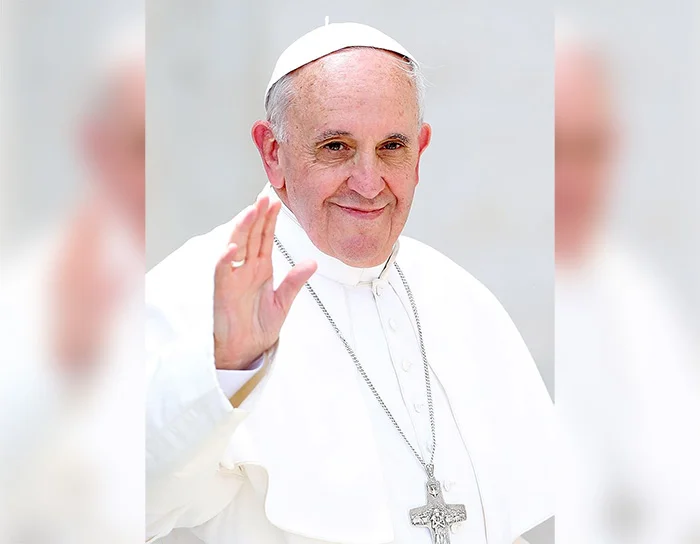
by Christopher White Vatican Correspondent
Pope Francis has written a sweeping letter to the U.S. bishops decrying the “major crisis” triggered by President Donald Trump’s mass deportation plans and explicitly rejecting Vice President JD Vance’s attempts to use Catholic theology to justify the administration’s immigration crackdown.
“The act of deporting people who in many cases have left their own land for reasons of extreme poverty, insecurity, exploitation, persecution or serious deterioration of the environment, damages the dignity of many men and women, and of entire families, and places them in a state of particular vulnerability and defencelessness,” reads the pope’s Feb. 11 letter.
Since taking office on Jan. 20, the Republican president has taken more than 20 executive actions aimed at overhauling the U.S. immigration system, including plans to ratchet up the deportations of undocumented migrants and halt the processing of asylum seekers.
The pope’s letter, published by the Vatican in both English and Spanish, offered his solidarity with U.S. bishops who are engaged in migration advocacy and draws a parallel between Jesus’ own experience as a migrant and the current geopolitical situation.
“Jesus Christ … did not live apart from the difficult experience of being expelled from his own land because of an imminent risk to his life, and from the experience of having to take refuge in a society and a culture foreign to his own,” writes Francis.
While the letter acknowledges the right of every country to enact necessary policies to defend itself and promote public safety, the pope said that all laws must be enacted “in the light of the dignity of the person and his or her fundamental rights, not vice versa.”
The pontiff also goes on to clearly reject efforts to characterise the migrants as criminals, a frequent rhetorical device used by Trump administration officials.
“The rightly formed conscience cannot fail to make a critical judgment and express its disagreement with any measure that tacitly or explicitly identifies the illegal status of some migrants with criminality,” the pope writes.
Soon after Trump took office, Vice President JD Vance — a recent convert to Roman Catholicism — attempted to defend the administration’s migration crackdown by appealing to St. Thomas Aquinas’ concept of ordo amoris.
“Just google ‘ordo amoris,’ ” Vance posted on social media on Jan. 30 in response to criticism he received following a Fox News interview.
During that interview, Vance said: “You love your family, and then you love your neighbour, and then you love your community, and then you love your fellow citizens in your own country. And then after that, you can focus and prioritise the rest of the world.”
While not mentioning Vance directly by name, Francis used his Feb. 11 letter to directly reject that interpretation of Catholic theology.
“The true ordo amoris that must be promoted is that which we discover by meditating constantly on the parable of the ‘Good Samaritan,’ that is, by meditating on the love that builds a fraternity open to all, without exception,” wrote the pope.
Since his election in 2013, Francis has become one of the world’s most vocal champions. His latest letter, however, marks a rare moment when the pontiff has directly waded into a country’s policy debates.
In the letter, however, he states that this is a “decisive moment in history” that requires reaffirming “not only our faith in a God who is always close, incarnate, migrant and refugee, but also the infinite and transcendent dignity of every human person.”
“What is built on the basis of force, and not on the truth about the equal dignity of every human being, begins badly and will end badly,” the pope warned.
In a brief post on social media, the U.S. bishops’ conference shared the pope’s letter with its online followers.
“We are grateful for the support, moral encouragement, and prayers of the Holy Father, to the Bishops in affirmation of their work upholding the God-given dignity of the human person,” read the statement.
(The National Catholic Reporter)
Opinion
Is Sri Lanka’s war on three-wheelers an attack on the poor?
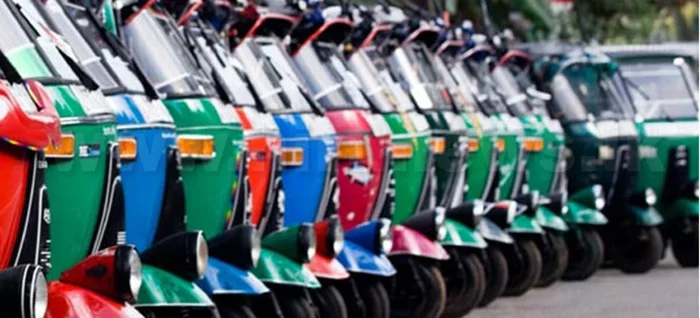
For decades, three-wheelers—commonly known as tuk-tuks—have been a vital part of Sri Lanka’s transportation system. They provide an affordable and convenient way for people to get around, especially in areas where public transport is unreliable. However, successive governments have repeatedly discouraged their use without offering a viable alternative. While concerns about traffic congestion, safety, and regulations are valid, cracking down on three-wheelers without a proper replacement is unfair to both commuters and drivers.
For millions of Sri Lankans, three-wheelers are not just a convenience but a necessity. They serve as the primary mode of transport for those who cannot afford a private vehicle and as the only reliable last-mile option when buses and trains are not accessible. Senior citizens, people with disabilities, and those carrying groceries or luggage rely on tuk-tuks for their ease and accessibility. Unlike buses, which often require long walks to and from stops, three-wheelers offer door-to-door service, making them indispensable for those with mobility challenges.
In rural areas, where public transport is scarce, three-wheelers are even more critical. Many villages lack frequent bus services, and trains do not serve short-distance travel needs. Tuk-tuks fill this gap, ensuring people can reach markets, hospitals, and workplaces without difficulty. In urban areas, they provide a quick and affordable alternative to taxis and private vehicles, especially for short trips.
Despite their importance, three-wheelers have increasingly come under government scrutiny. Restrictions on new registrations, negative rhetoric about their role in traffic congestion, and limits on their operation in cities suggest that policymakers view them as a problem rather than a necessity. Authorities often cite traffic congestion, safety concerns, and lack of regulation as reasons for discouraging tuk-tuks. While these issues are valid, banning or restricting them without addressing the underlying transport challenges is not the solution.
The biggest flaw in the government’s approach is the absence of a proper alternative. Sri Lanka’s public transport system remains unreliable, overcrowded, and often inaccessible for many. Buses and trains do not provide efficient coverage across all areas, and ride-hailing services like Uber and PickMe, while convenient, are often too expensive for daily use. Without a suitable replacement, discouraging three-wheelers only makes commuting more difficult for those who rely on them the most.
Beyond the inconvenience to passengers, the economic impact of limiting three-wheelers is significant. Thousands of drivers depend on tuk-tuks for their livelihoods, and with rising fuel prices and economic instability, they are already struggling to make ends meet. Further restrictions will push many into financial hardship, increasing unemployment and poverty. For passengers, particularly those from lower-income backgrounds, losing three-wheelers as an option means higher transport costs and fewer choices.
Instead of discouraging tuk-tuks, the government should focus on improving and regulating them. Many countries have successfully integrated three-wheelers into their transport systems through proper policies. Sri Lanka could do the same by enforcing proper licensing and training for drivers, introducing digital fare meters to prevent disputes, ensuring better vehicle maintenance for safety, and designating tuk-tuk lanes in high-traffic areas to reduce congestion. These measures would make three-wheelers safer and more efficient rather than eliminating them without a backup plan.
The government’s push to restrict three-wheelers without providing a suitable alternative is both unfair and impractical. Tuk-tuks remain the only viable transport option for many Sri Lankans, particularly senior citizens, low-income commuters, and those in rural areas. Instead of treating them as a nuisance, authorities should recognise their importance and focus on making them safer and more efficient. Until a proper substitute is in place, discouraging three-wheelers will only create more problems for the very people who need them the most.
P. Uyangoda
Director-Education (retired)
Nedimala
Opinion
Government by the people for the people: Plea from citizenry
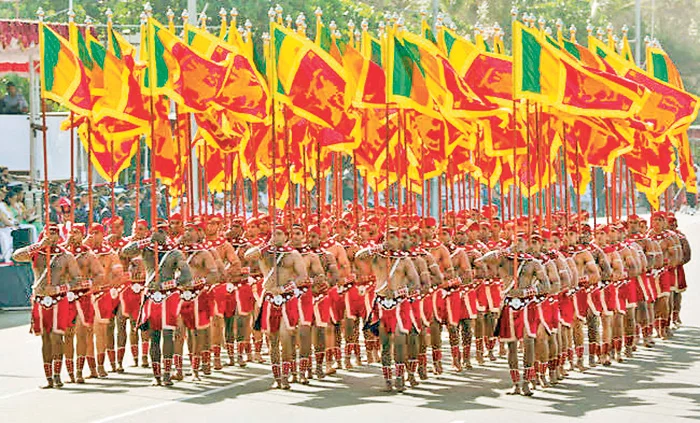
By an Old Connoisseur
The incumbent rulers keep on reminding the people, ad nauseam, that the current administration is a government for the people by the people. They have claimed the current government was born out of the uprising of the people.
All governments in democratic societies are born out of the will of the people. In such a context, all such governments have to work towards the well-being of the people with undiluted commitment. There is no doubt in the minds of even the most discerning citizens of Sri Lanka that all these promulgations are indeed the most noble of objectives and one would justifiably expect such contentions to even warm the cockles of the hearts of all and sundry.
Yet for all this, we do need to remember and firmly reiterate to our politicians that this principle should be the bedrock on which the political governance of any democracy is based. The people of a country should come first and foremost in all considerations of any legally elected democratic government. True enough, we do know for sure that even despite the very loud vocal grandiloquence of all previous governments, and I repeat all previous governments, they did not go even a little distance to hold the welfare of the people to be sacred, and their deeds and interests were completely at loggerheads with such an honourable foundation as well as essential and admirable attitudes. Without any significant exceptions, all previous political systems over the last 77 years of independence of our much-loved Motherland, have gone on record as institutions that put themselves first in all their considerations.
In point of fact, we also have to agree even unequivocally that this noble task cannot be achieved by the politicians alone. Politicians will have to take steps to stimulate, facilitate and unite all sections of society so that our people will put their collective shoulder to the wheel in a concerted initiative to lift up this country from the mire into which it has been pushed by politicians of various hues. Delving deeper into the depths of this contention, the question arises as to what or who are understood as people. In any society when one talks of people, we should focus on all people; the rich and the poor, the able and the disabled, the educated and the not so well educated, the employed and the unemployed, public-sector workers and the private-sector workers, the farmers as well as the white-collar workers, government enterprises as well as community organisations, and the business enterprises; in fact, the whole lot of Homo sapiens in our country. To improve the well-being of people we need the participation and unstinted cooperation of all these groups in our populace. An abiding sense of patriotism in the psyche of all of our people is definitely the need of the hour.
Politicians lay down the policies and the public sector ensures the implementation of these rules and regulations to improve the wellbeing of people. The public sector, including all politicians of different sorts, are servants of the people and are not deities with unlimited power just to take care of themselves and their political institutions as well as their kith and kin and acolytes. To realise these exalted goals we have to ensure that we have certain universal rules including respect for our people at all times, fair distribution of resources in an equitable manner, kindness, empathy and respect for the freedom of others, preservation and conservation of nature and the environment, adherence to the rule of law, unmitigated compliance with basic human rights and dignity, as well as the development of those very fine humane attributes such as beneficence, non-maleficence and altruism.
If we are to develop by transforming society by the people for the people, we will have to internalise and translate these attributes in our behaviour all the time and in all sectors of the community. Political leadership alone cannot do this honourable task. Society has to unite under these values and other attributes to be articulated and facilitated by the leadership. This is what many other progressive countries have attempted, some of them forging ahead with great success. For this to happen the entire society will have to work together over a long time with respect and minimal adversity. The stakeholders for this endeavour would be all individuals of society, Public Service including the political leadership, Private Sector and their leading figures and Community Organisations including their management. Every member of the population of our wonderful country should be invited to put his or her shoulder to the common wheel in a trek towards prosperity to enable everybody to enjoy an era of opulence.
The most admirable theme for the celebrations of our independence on the 4th of February this year was “Let us join the National Renaissance”. It was a clarion call to enable us to rise up like the proverbial phoenix from the ashes towards a magnificent revival. In addition to all that has been written above, the government and its leadership, for their part, have an abiding duty to take all necessary steps to facilitate the revitalisation of patriotism to urge the populace to contribute to the prospect of national resurgence. Towards that end, the general public has to be happy in this thrice blessed land and they need to live in a country that is safe and affluent. The powers that be need to realise most urgently that unless corruption is completely eliminated, the drug lords effectively neutralised, murderers and other law-breakers swiftly brought to book, various Mafia-type impertinent audacious organised collectives such as Rice Millers, Egg Manipulators, Coconut Wheeler-dealers, and Private Transport Syndicates; all of which hold the public to ransom, are ruthlessly tamed, there is no way in which we can rise and march towards any kind of Nationwide Resurgence. Of course, equally importantly, the farmers who provide sustenance to the entire nation should be looked after like royalty. It is also ever so important that vital and purposeful steps are taken to develop the rural impoverished areas and take steps to alleviate the poverty of the downtrodden. If these things are not attended to, at least for a start, the grandiose but implausible and tenuous rhetoric of that call to rally would just be a ‘pus vedilla’, and could even be a virtual non-starter.
-

 Business5 days ago
Business5 days agoSri Lanka’s 1st Culinary Studio opened by The Hungryislander
-

 Sports6 days ago
Sports6 days agoHow Sri Lanka fumbled their Champions Trophy spot
-

 Features6 days ago
Features6 days agoThe Murder of a Journalist
-
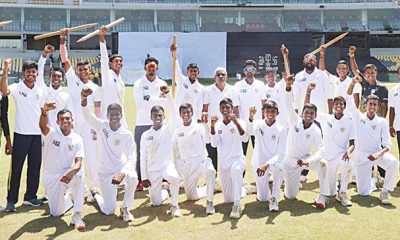
 Sports6 days ago
Sports6 days agoMahinda earn long awaited Tier ‘A’ promotion
-
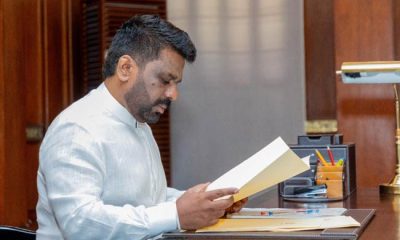
 Features6 days ago
Features6 days agoExcellent Budget by AKD, NPP Inexperience is the Government’s Enemy
-

 Sports5 days ago
Sports5 days agoAir Force Rugby on the path to its glorious past
-

 News6 days ago
News6 days agoSri Lanka’s first ever “Water Battery”
-
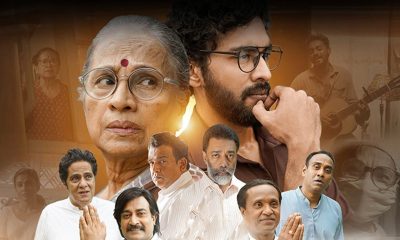
 Features5 days ago
Features5 days agoRani’s struggle and plight of many mothers











